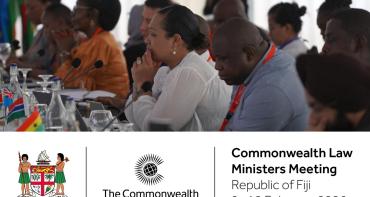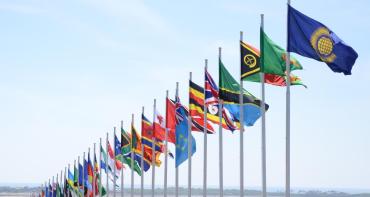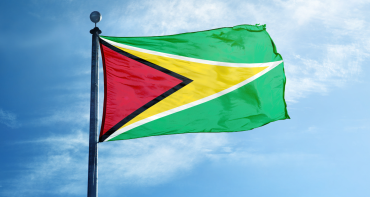Sri Lanka is one of the eight founding members of the modern Commonwealth, and has a unique history and heritage, which form part of the Commonwealth’s rich diversity
Commonwealth Secretary-General Kamalesh Sharma visited the South Asian island nation of Sri Lanka from 9 to 13 September. It was a multifaceted visit that included an address to the 58th Commonwealth Parliamentary Association Annual Conference in Colombo, and visits to facilities to be used for the 2013 Commonwealth Heads of Government Meeting (CHOGM) in Colombo. Mr Sharma also held discussions with senior Sri Lankan officials and met with nationals in the eastern part of the country who had been resettled after many years of internal conflict.
The Secretary-General said: “The Commonwealth, as an association of peoples and governments, is enriched by Sri Lanka’s membership. Sri Lanka contributes generously and also gains from access to the Commonwealth’s networks of 54 member governments as well as professional associations and civil society through the sharing of resources, experiences and opportunities.”
During the five-day visit, the Secretary-General was received by President Mahinda Rajapaksa, with whom he had discussions on a broad range of issues. He also met with External Affairs Minister G L Peiris; Monitoring Member of Parliament for the Ministry of External Affairs, Mr Sajin de Vass Gunawardena; Secretary to the President, Mr Lalith Weeratunga, and other senior officials. Mr Sharma also met with Opposition leader Ranil Wickremesinghe, and the community of resident high commissioners.
Mr Sharma’s itinerary included a visit to Thirukkovil in Sri Lanka’s Eastern Province, where he met with local officials and was briefed on an entrepreneurship project for young people located in former conflict areas. The project is one that is supported by commercial banks and industry bodies. The Commonwealth is set to become a partner in the extension of the project concept. The Secretary-General also visited the Kanchiramkuda Resettlement Project and had a chance to hear directly from several residents who shared their experiences.
“All of my meetings were informative and valuable, and afforded the opportunity to gain an up-to-date perspective of how the Commonwealth’s work is viewed and how we may be of greater assistance and relevance to all Sri Lankans,” Mr Sharma said.
CPA Conference
The Secretary-General delivered a keynote address to the 58th Commonwealth Parliamentary Conference on its theme of ensuring the Commonwealth’s continued relevance to the times and to the citizens of its member states worldwide. He told delegates that the Commonwealth Secretariat was implementing a series of reforms to sharpen impact, raise its profile and strengthen its networks. He noted: “We are particularly committed to working in closer partnership with the family of accredited Commonwealth organisations, including the Commonwealth Parliamentary Association.”
2013 CHOGM
Mr Sharma was briefed on the Sri Lankan Government’s preparations for its hosting of the Commonwealth Heads of Government Meeting, scheduled for 15–17 November 2013. He visited some of the proposed venues, noting that the logistical arrangements were well in hand.
The Sri Lankan Government plans to have a development orientation to the discussions and outcomes of the 2013 CHOGM. Its focus is to draw non-urban communities more meaningfully as participants into national life, and as beneficiaries of national growth and development. This thematic orientation is expected to have strong appeal to Heads of Government from across the Commonwealth, especially in developing and small states, where the challenges of providing national services and economic opportunities to remote communities are felt strongly.
Partnership with Sri Lanka
The Commonwealth is already active, through the Commonwealth Fund for Technical Co-operation in development assistance collaboration with Sri Lanka – especially, at present, in helping to strengthen the public service.
Speaking at a press conference towards the end of his visit, Mr Sharma told journalists that the goal of the Commonwealth’s partnership is to assist Sri Lanka’s own efforts in providing access for every individual citizen to a life of dignity and socio-economic opportunity. He said the Commonwealth was also committed to assisting Sri Lanka in continuing to strengthen its culture of democracy and pluralism, and to advance the Affirmation of Commonwealth Values and Principles.
“Each Commonwealth member country has its own unique development context and challenges,” he noted. “The Commonwealth Secretariat is committed to pursuing practical actions in Sri Lanka, in close consultation with the government, especially assistance that places young people at the heart of national development as this country’s future leaders as well as agents of social and economic transformation.”
Mr Sharma said that as a result of his consultations and other recent contacts between the Commonwealth Secretariat and the relevant Sri Lankan authorities, the Commonwealth would be deepening its partnership with Sri Lanka in the years ahead. He outlined possibilities for new or enhanced assistance in the following areas:
- Public service strengthening including support for training of public servants; strengthening leadership capacity of senior officials; promotion of collaboration between the public and private sectors; and, further support for the Sri Lanka Institute for Development Administration;
- Youth entrepreneurship, including the implementation of the ‘Harnessing Aptitude and Potential Entrepreneurial Skills in Youth’ project in partnership with the Federation of Chambers of Commerce and Industry of Sri Lanka, and the Ministry of Youth Affairs and Skills Development. This project includes exploring opportunities for commercial banks to support young business creators and job creators;
- Establishing a pilot project on Sports for Development and Peace in the North and East of Sri Lanka, as requested by the Department of Sports Development and in partnership with that department;
- Exploring further the establishment of a cadre of trainers to implement a ‘Youth Ambassadors for Peace’ project as part of the recent peace-building work developed jointly by the Commonwealth Youth Programme’s Regional Centre for Asia and India’s Rajiv Gandhi National Institute of Youth Development;
- Supporting the strengthening of the Office of the Elections Commissioner, as recommended by Commonwealth election observers;
- Supporting the strengthening of the Human Rights Commission of Sri Lanka, according to its needs and priorities;
- Implementing a local government strengthening project to give enhanced effect to the implementation of Sri Lanka’s National Policy on Local Government, in partnership with the Commonwealth Local Government Forum, the Sri Lankan Ministry of Local Government and Provincial Councils, the Federation of Sri Lankan Local Authorities, and the Sri Lanka Institute of Local Government;
- Supporting implementation of the Lessons Learned and Reconciliation Commission report, in ongoing consultation with the Government of Sri Lanka, including sharing Commonwealth experience on reconciliation;
- Provision of expertise in legislative drafting; and,
- Capacity strengthening of the media, including training for journalists in reporting on development and growth issues, and reporting during elections.
At the end of his visit, Mr Sharma said: “I depart with appreciation and also a deep and first-hand understanding of Sri Lanka’s current national challenges and priorities.”



